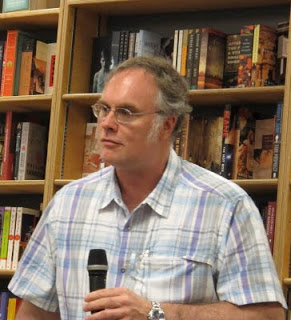A Quote by Sandra Tsing Loh
Recently it was pointed out to me - in a kind of hurtful way, to be honest - that people in Los Angeles are aurally challenged. That is, at social events, we simply do not listen to others. We do not ask them questions about themselves, we do not nod attentively when they speak; really, if we were to examine ourselves, we would realize that we simply have no interest in others at all.
Related Quotes
One cannot control the actions of others, but we are responsible for what we do. People say things such as, "I can't do this," "it is not really me," "this makes me uncomfortable," etc. People, simply put, opt out of playing the game or doing so in a way that will make them successful. So get over yourself, and do what you need to do - and what, by the way, others around you are doing, to become more powerful.
A psychologist once asked a group of college students to jot down, in thirty seconds, the initials of the people they disliked. Some of the students taking the test could think of only one person. Others listed as many as fourteen. The interesting fact that came out of this bit of research was this: Those who disliked the largest number were themselves the most widely disliked. When we find ourselves continually disliking others, we ought to bring ourselves up short and ask ourselves the question: "What is wrong with me."
How can we know ourselves by ourselves? . . . Soul needs intimate connection, not only to individuate, but simply to live. For this we need relationships of the profoundest kind through which we can realize ourselves, where self-revelation is possible, where interest in and love for soul is paramount.
Going out to others in order to reach the fringes of humanity does not mean rushing out aimlessly into the world. Often it is better simply to slow down, to put aside our eagerness in order to see and listen to others, to stop rushing from one thing to another and to remain with someone who has faltered along the way.
I lapsed into my pathetic cut-off period. Often with humans, both good and bad, my senses simply shut off, they get tired, I give up. I am polite. I nod. I pretend to understand because I don’t want anybody to be hurt. That is the one weakness that has lead me into the most trouble. Trying to be kind to others I often get my soul shredded into a kind of spiritual pasta. No matter. My brain shuts off. I listen. I respond. And they are too dumb to know that I am not there.
None of us are rational economic men as we're supposed to be portrayed in economic theory where mixes of passions, of desires, of moral principles, of self-deception, of altruism, of concern of others, of concerns for ourselves and an interest in our bank accounts. And social policies have to be responsive to the complexity of who we are as people or else, like the war on drugs, they're simply going to fail.






































